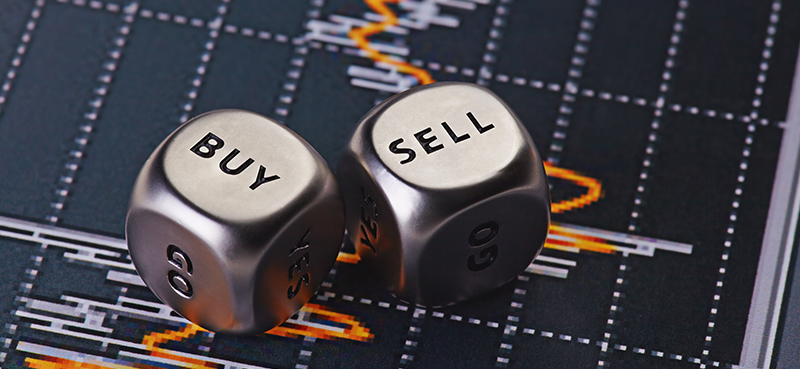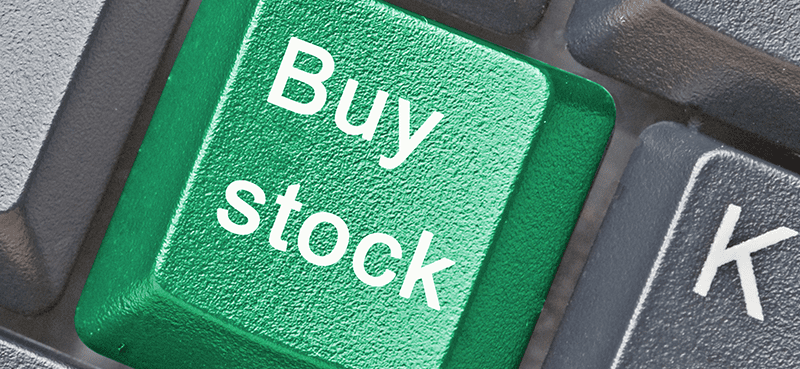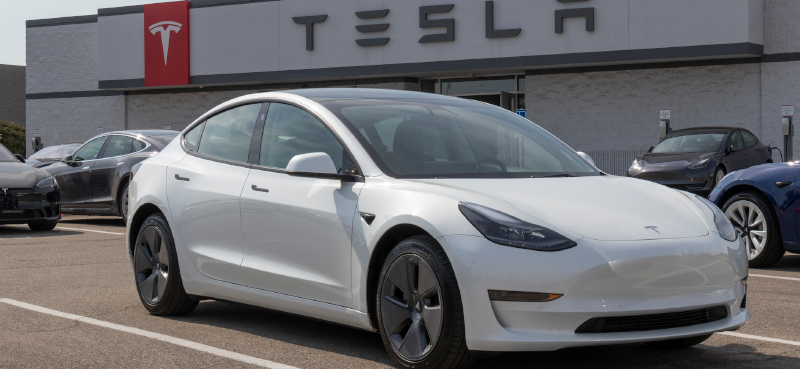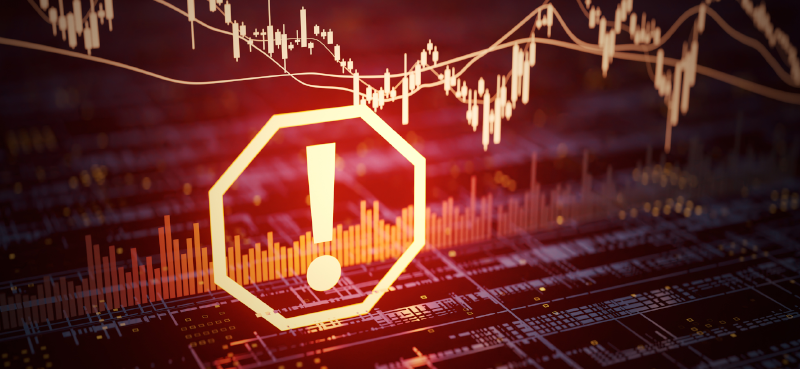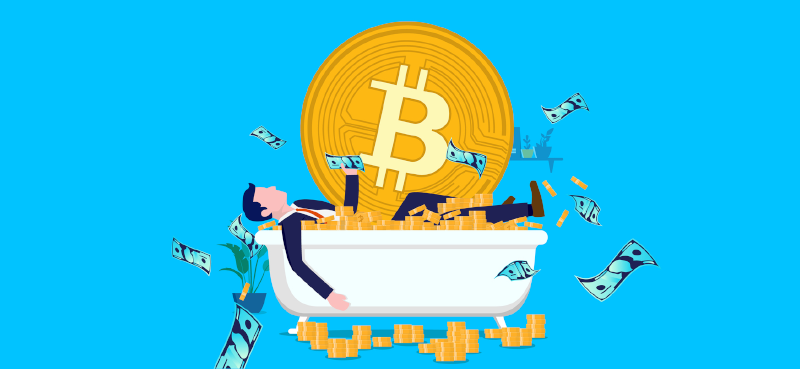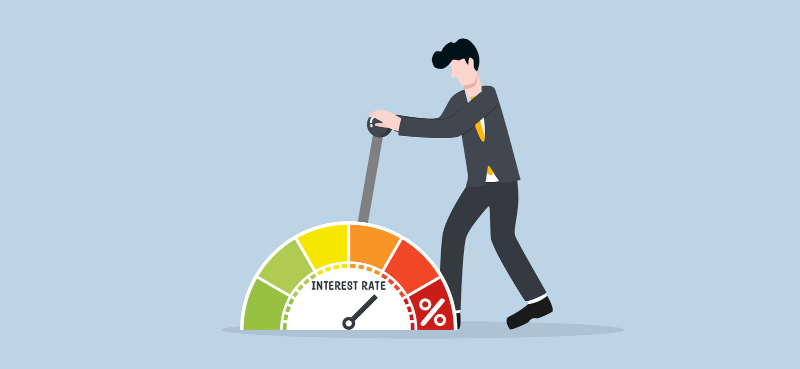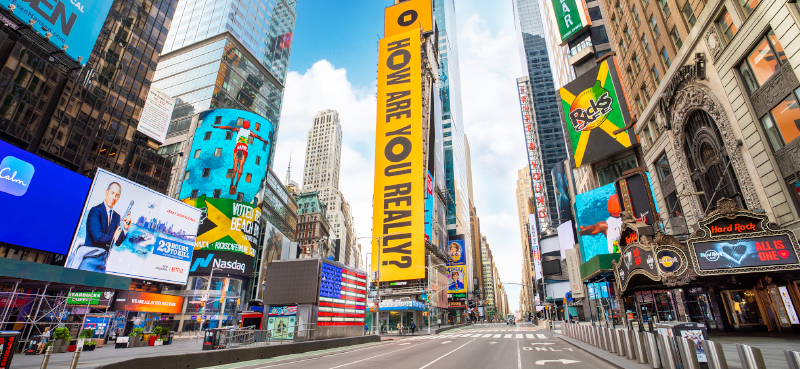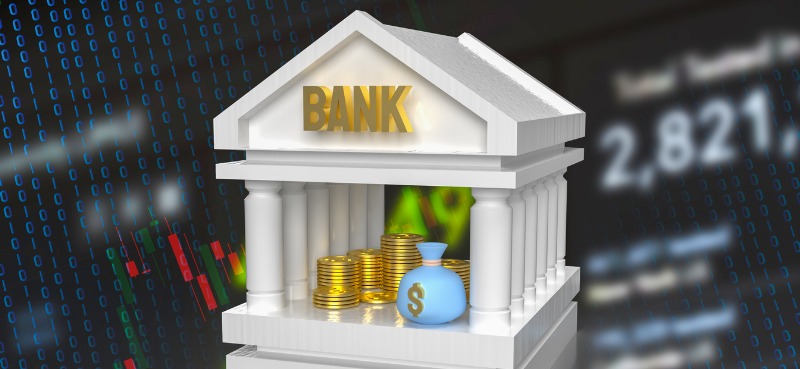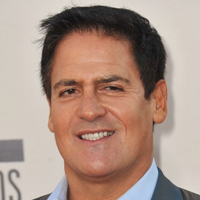I start today’s podcast with a look at Walmart’s earnings… and whether the stock is a buy after today’s drop. Walmart has a front row seat on inflation and supply chain problems… I explain how these issues are affecting consumer spending habits.
I also dig into China’s influence over our food industry… whether food prices will keep soaring… why investors need to focus on inflation… and the factors I’m looking at to decide which stocks to buy.
And I answer some listeners’ questions about Coinbase, lumber prices, and Disney.
- Is it time to buy Walmart and Home Depot? [1:22]
- Supply chain issues aren’t going away anytime soon [4:08]
- Why inflation is the No. 1 risk for investors [6:38]
- What to look for when buying stocks right now [11:10]
- “Should you store your crypto in Coinbase?” [15:41]
- “Where do you see lumber prices in the future?” [19:38]
- “What are your thoughts on Disney?” [27:13]
Wall Street Unplugged | 894
What I’m looking for before buying stocks right now
Announcer: Wall Street Unplugged looks beyond the regular headlines heard on mainstream financial media to bring you unscripted interviews and breaking commentary direct from Wall Street right to you on main street.
Frank Curzio: How’s it going out there? It’s Tuesday, May 17th. I’m Frank Curzio, host of the Wall Street Unplugged podcast, where I break down headlines and tell you what’s really moving these markets. It’s so refreshing to see the markets bouncing back today, including Bitcoin. However, we just went through seven straight weeks of declines, seven straight weeks. I’m not talking about small declines either, major declines, very, very steep, every single week, watching a portfolio go lower and lower as inflation runs wild. The Fed is about to start reducing its balance sheet by hundreds of billions. They didn’t even start yet guys. And they’re going to continue to raise rates at least over the next six months. Based on inflation and where it is, if it moderates or not, that could be more like 12 to 15 months. Hopefully, it’s not that long. So, you guys need to hunker down. It’s going to get choppy. What we’ve seen for the past, not even just two months… I mean, massive declines over past two months, but even since November… Different market.
Frank Curzio: Now, I mentioned past podcasts, I think we’re at levels that many stocks are strong buys. I love the Walmart and Amazon misses. Walmart missed today. Cramer has thrown in a little bit of a fix, because he has his portfolio, and he got it wrong, which is fine. We’ll get some things wrong. However, they missed their quarters, and a lot of it has to do with higher expenses, which they use to pay employees more money, locked them in, critical in this type of market, take a step back, one step back, two steps forward. I know you have supply chain issues, so Walmart was kind of a surprise in a market with inflation, when people are cutting back. You’re looking at the Walmarts and McDonald’s, supposed to do well. McDonald’s is starting to pick up, but it was surprise. I’d use it as a pullback though, to buy Walmart, especially you can have Kramer. The soundboard is on.
Frank Curzio: CNBC’s going to be trashing it and going crazy. It’s probably going to knock it down even further, which it did. It was down six percent. It was down three percent. Then when the market opened, then Cramer started just going off on it. It went down six, seven percent again, very influential, which is fine. Use it to your advantage. Walmart is a good company. They’re going to get it right. People are still going to shop there. For the market as a whole, we really have a lack of catalysts for, what, the next three months, minimum, as we’re hoping, inflation moderates, and you look at earning season, mostly over. 85% of the companies are already reported. We had Home Depot and Walmart report. They always report late in their earning season. About 85, close to 90%, have already reported. Ukraine-Russia War, not ending anytime soon, so food and energy inflation is going to continue at least over the next few months.
Frank Curzio: We’ll look at this summer. You’re going to see more people travel, go on vacation. So, the travel stocks, they’re bouncing back and forth, but they definitely bounce sharply off their lows, but I don’t know if you guys traveled lately. I don’t know if you’ve gone on vacation since COVID, because COVID was, what, 2020, early 2020? So, that summer was done. The next summer was done, because they had omicron come around. So, a lot of people out there haven’t traveled. Some of you have, but most haven’t. You’re going, “Hey, I’m going on vacation. This is the first time where everything is open, no masks, almost no restrictions.”
Frank Curzio: I’ve traveled, and holy shit. I mean, gas prices are 40% year-over-year. Rental cars are up 24% year-over-year. Hotel rates are at record highs. Holy cow, holy cow, I mean, they’re just surging. Food prices are at 14-year highs, and airline prices are up 19%, not year over year like the rest of the stats I just said. Month over month, airlines are up 19% going into the summer, covering those fuel costs. That’s why I say, “You’ve got to own an airline. See demand come back.” So, I’m sure most families are still going to go on vacation this summer, no doubt about that. But what I do doubt is, I’m not sure they’re going to have much left to spend on anything else once they get back, and that hurts the economy.
Frank Curzio: We have supply chain concerns, not going away anytime soon. May 5th, the Shanghai Japanese Commerce and Industry Club… That’s actually an organization… They published a survey of Japanese factory owners in China. This is a survey. Nearly two thirds, guys, 63% of Japanese factories in Shanghai have not resumed any production yet. They’re still closed. This is from two weeks ago, a lot different from what China’s saying. Also, 28% of the rest of those factories only restored less than 30% of their capacity. So, we’re looking at 90%, or over 90%, of Japanese factories not even close to being back online, and it’s not just Japanese factories, but it’s a good indication, because that’s something China can’t lie about because Japan has their factory production. We all have our factory production. Everyone knows that production is coming down tremendously. China is saying, “No. We’re opening up slowly. We don’t have this massive zero policy COVID anymore.”
Frank Curzio: That’s bullshit, lying again. China is still locked down. We’re going to have supply chain issues. Even China is locked down. What are they doing? Continue to ramp up coal usage, which is brilliant. Nobody else wants to use coal. If we stop using coal, we’re going to save the planet. It doesn’t matter if anyone else in the world uses coal. Right? It doesn’t matter even though we only account for 11 percent of emissions, carbon emissions. It’s incredible when you look at the stats, and you’re going to see a lot of countries take advantage of it, and they are. They are, and China is perfectly okay to export that to you. That’s fine. “Just don’t do it in your country to sell. Check off the politics box.” That’s okay. They’re building stockpiles of food. China is the largest agricultural exporter in the world. So, when it comes to corn, not just coal, but corn, China is holding 70% of the world’s corn reserves.
Frank Curzio: When it comes to rice, they’re holding 60% of the world’s rice reserves, and wheat, they hold over 50% of the world’s wheat reserves. Yes, it’s going to result in massive inflation on the food level, which I spoke about, because I own fertilizer companies right now, especially how choppy they are, and you get them on 10, 15% pullbacks, depending on what the market is doing. But what about the people in third world countries who are going to starve?
Frank Curzio: We don’t talk about that much in America. Do we? No, it’s not important to us. It’s important that we’re paying higher prices, but either way, this is a market podcast, and that is not good. That’s less money in the pockets of consumers, which means they’re going to spend less money into the economy, and you’re looking at that spending. It accounts for over 70% of GDP, but inflation is not going away anytime soon. So, a lot of these problems… And you look at them. They’re not long term. I mean, inflation, it’s not something that’s going to be off for many, many, many years, but it’s going to be around for the next few months. It’s not going to just go away. You’re got to see it moderate, and inflation is the number one risk in the marketplace by a mile. We pounded the table on this for two years.
Frank Curzio: People don’t understand inflation. They don’t get it. They don’t understand. When that happens, the Fed is not going to be… It’s not going to be buy the dips. It’s going to be sell the rips instead, because the Fed is not there to guarantee, to backstop. The only way you control massive inflation is by forcing a recession, which means you’re taking money out of the system, which they’re doing now, and we’re talking about trillions in leverage, trillions, trillions, trillions, that needs to come out of the system, which you’re seeing, and a lot of it is leverage, which is why your favorite companies that are doing great, that reported great quarters, are down 25, 30%. You’re going, “Why are people selling this,” because they bought it with money that they did not have, and now they’re being forced to even sell their better things, which are not down 80% like SPACs and all the other shit, and they’re starting to sell their good names to cover that, because a lot was bought on debt.
Frank Curzio: That’s what’s going on right now. That’s what happens when you have a deleveraging process. It’s not pretty, but when you look at inflation, it’s not war. It’s not politics. It’s inflation. If inflation eases, which you’re going to see, higher prices. People aren’t going to continue to pay higher prices forever. You’re seeing a lot of companies say that we can’t no longer pass those prices off, and it’s going to happen across the board as people cut back. You just can’t afford everything, the gas prices, energy prices, food prices. They can’t afford to spend as much as they were, and they’re going to cut back in the end. They’re changing their habits now. You’re seeing it. I’m seeing it earning season. I’m seeing it through a lot of companies reporting. You’re seeing it right now, but if inflation eases, almost every one of these problems start to go away. The Fed doesn’t have to get so aggressive and tightening, which you’re worrying about.
Frank Curzio: Supply chain concerns are going to ease. The Russian, Ukrainian war, well, that’s inflation on so many different levels, but assuming Russia-Ukraine, it’s not a war that’s going to go on for many, many years, and that’s going to ease, but again, when you have inflation coming down, it’s not going to hurt as much.
Frank Curzio: So, we’re close. Stocks are down huge to account for all these risks. When you’re looking at the NASDAQ, more than half of the stocks in this index are down more than 50% from their highs. That is an insane stat. That is an insane stat, guys. You almost never see that. I mean, that’s unbelievable. That’s just a massive sell off of everything. That’s when you know it’s a deleveraging process. That’s when you know a lot of debt is coming out of the market with everything. There’s not even safe havens. Gold used to be a safe haven. Gold stocks are getting wrecked. They haven’t been really the safe haven. You could say, “They’re not coming down, just as much as everybody else.” “Yeah, you’re right,” and they went up barely over the past six, seven years, while everything tripled, quadrupled. Bitcoin has come down.
Frank Curzio: It’s seen as a high risk asset, which I get, because the leverage could be 30, 40 times in some of these depending on where you have your account. And a lot of these kids leverage like crazy, and now you’re seeing that, a lot of money come out of the market, but a just unbelievable stat. Biotech name is down 70%. I mean, the average healthcare company is down 75% from the highs, the average healthcare company. I’m not picking small caps. I’m not picking just Biotech. I’m saying the average healthcare company. So, 75% from their highs, what, they’re great technology into Biotech? They’re phase one phase two that they passed? I mean, are they not going to get funded? Of course, they’re going to get funded.
Frank Curzio: It’s amazing. See, more companies trade under their cash value, their net cash, more companies today, than during the credit crisis, which is insane. That’s how far down we have come. We are close. Yes, there’s a lot of risks out there, but we know we’re talking about them. We just need inflation to ease, because a lot of these risks are starting to be priced in. I mean, small caps as well, trading at cheaper evaluations compared to April 2020, the bottom of the COVID crash. Small caps, right now, really? You’re trading at those with total uncertainty, whether you don’t know if people are dying from COVID. We don’t know anything about it, really, in April 2020 and March. We’re just starting to spread everywhere. Everything is closed, the uncertainties. Small caps should be trading below those levels from valuation a standpoint, with earnings still growing? I don’t know.
Frank Curzio: But you want to own equities, probably want to stop picking away now. And how do you choose what names to buy? Well, earning season is just about over. Make sure you listen to the conference call, but now you’re going to see these massive buybacks, these levels, from companies’ strong balance sheets. That’s going to trigger. They’re going to be allowed to buy their stock as kind of a quiet period. Also, insiders are going to be able to buy. Make sure you’re focusing on insiders. I wouldn’t even look at the 13 Fs, which are accounted for last month, because a lot of things have changed. We had Buffet buying Citi Group, which… City is going higher, but I wouldn’t really… Buffett is different. He buys stocks and holds them forever and adds to them over time, but a lot of these guys are shifting and getting out of technology and blasting out of technology.
Frank Curzio: They probably compared what they did last quarter, not last month, but last quarter, and blew out all these technology names. If I was them, just like David Tepper said, “Listen, my NASDAQ short is off.” They’re probably starting to add right now, so I wouldn’t look at 13 Fs, because so much… We’re look at a market. In the past three months, NASDAQ is down, what, 22, 23% over that timeframe? The market has gotten smashed. So, don’t look at that, because a lot has changed from what they decided to do with their portfolios compared to what’s going on right now. Again, they were pointing three months from now, but look at some of these companies that had two strong quarters. The last two quarters are really strong, yet they’re down with the rest of the markets, a lot of names there. Make sure the companies you have that you’re going to buy have growth catalysts, and not just dirt cheap.
Frank Curzio: Make sure there’s growth catalysts. Make sure they have pricing power. Look for insider buys. You’re starting to see that, but 20% of the S&P 500 is now trading below 10 times forward earnings. That’s a lot of names. That’s 100 names right there. I would start there, just with those 100 names. Look at some of those insiders buying, which ones are paying a dividend, which ones have strong balance sheets, which ones are down 20% plus for no reason at all, and they reported good quarters. You’re going to get at least 10 really cool names that you’re going to be able to say, “Holy shit, I can’t believe these companies are at these levels. I’m going to buy them,” and looking two years from now, inflation is going to moderate. Two years from now, the Fed is going to start easing again. Yes, that’s far away, but remember. Where stocks are, you have to account for that. All the risks that we’re mentioning, inflation and stuff like that, we’ve been talking about for a while.
Frank Curzio: We see these risks on the table, and stocks are reflecting that, more than reflecting that right now. So, if you have a long term horizon, or if you’re in there, you’d sell it. Listen, it’s going to be choppy over the next few months. It’s going to be a little crazy. However, inflation is going to ease. You’re seeing it on some levels. You’re not going to see it with food and energy for a little longer, probably through the summer, but as we ease… And we will… That’s going to be a catalyst. The Fed hopefully gets aggressive when they’re raising rates, shrinking their balance sheet. This way, they have a lot of ammo, maybe 12, 18 months from now, and you want to be in before that, before that point, because you’re going to see stocks start rocketing higher just like they’re crashing right now. Factoring in this massive inflation that we have, the reverse is going to happen at these levels.
Frank Curzio: There’s a lot, a lot of good names out there, a lot, a lot of good names that you could pick away with. Again, I talked about Walmart, Amazon at these levels, I mean, Microsoft, Apple. What’s changed? What’s changed? And you’re looking at the NASDAQ, and how much it’s come down. I mean, not every tech stop is the same. You have crazy valuation in SPACs and the tech sector, the cloud, AI, social media, software eCommerce, crazy valuations across the board, but not Microsoft and Apple, bargains here. Netflix, 15 times forward earnings, and they’re going to start growing their sub base again. You’ve got a lot of those free people with passwords that they’re going to subscribe. They’ve got Ozarks, Stranger Things. They just have great content compared to everyone else. People are going to subscribe. You can see that number grow.
Frank Curzio: But many of those names, now 50% plus, they don’t deserve to be down that far, definitely a time to start picking away. With that said, it’s a crazy market right now. So, I’m going to change the format a little bit here and take more of your questions. So, I’m going to take some of your questions today. Send more questions, frankcurziaresearch.com, for tomorrow. Dan is on vacation, vacation during this time. Man, I pay that guy way too much money. Now, Dan deserves a vacation. He works his off, but Daniel is on vacation. So, we usually have that segment where Daniel and I talk about the markets. I’m going to take questions. I’m here for you. It’s a crazy market. I know it’s been down seven weeks. Yes, it’s nice to see it bounce today. Tomorrow, who knows what’s going to happen? Hopefully, we get one week where the market is up, seven straight weeks of declines is incredibly, incredibly painful.
Frank Curzio: And those declines aren’t 0.3% in points. I mean, we’re looking at massive declines every week that we go by this, and it’s been incredibly painful for a lot of people, and I get it. So, I want to be here for you. Ask questions, frankcurziaresearch.com. Let’s take a couple today. So, first one is from Jeremy. He goes, “Frank, where do you recommend storing crypto utility tokens? I have kept my coins on the crypto exchanges thus far, such as Coinbase, Voya, et cetera. Coinbase is risky, disclosing in their 10-Q, ‘The crypto assets we hold in custody on behalf of our customers could be subject to bankruptcy proceeding.’ Do you see this as a real risk, or is it being overblown? I’ve opened a Meta Mask account. Would you recommend transferring all my coins with Meta Mask versus a USB drive? Thanks again.”
Frank Curzio: You never know what’s under the hood for any company. You really don’t. In the US, we have some of the best regulations. CEOs have to sign off. They’re going to go to jail, so you don’t see it often, but you do see it sometimes. You don’t really know. For me, I have crypto stored on Coinbase. I’m not moving it. I’m not going to tell you not to move it, or whatever. I’m just telling you. I really don’t know what’s going on in the hood, but I’m not worried. I also have crypto in cold storage, like you said, offline. Meta Mask, as well, or Meta Mask that I’ve talked to, people who are really in this industry, worry because they hear about it getting hacked sometimes in Meta Mask. As for Coinbase, and disclosing that risk, look, most companies… And I love this with disclaimers… I mean, they disclose every single crazy risk in they’re filing so they could never get sued, and most people never read them, and the lawyer is like, “Just throw 30 pages of risks in there no matter what it was.”
Frank Curzio: And we did that too at our company. You’ve got to just put every single thing in there. And basically, it’s like checking a box. If a tree falls on my building and I’m in it, I could be injured and fail to do my duty as CEO, and that can cause a stock to fall and go bankrupt, whatever. All right, well, a lot of this stuff is just crazy, but disclaimers are funny these days. I saw one the other day that said, “If you’re taken this antidepressant…” It was a commercial… “It causes suicidal thoughts,” and I’ve heard that before, but you know what I never heard? Afterwards, they said it causes suicidal thoughts, but mostly in people who are under 25 years old. And I thought that was incredible when I listened to it. Even though it’s stupid, I listen to some of those things, but that disclaimer never had an age on it before, the “suicidal thoughts” thing, and they actually made sure that they had a study with that, because most people taking antidepressants… And some are under 25… The core market is well over 25.
Frank Curzio: So, right away, when you list that it’s kind of not even a risk if you’re over 25, basically. So, but yet you have to say it. You have to say it. You have to go through this, and it was never like that with healthcare companies, where they take out a minute ad, and 45 seconds is, “This could cause this, this, this, this.” It’s just hilarious. Sometimes I tape it and I’ll post it, and it’s like, “You really want to take this drug. It’s funny,” but every single possible risk, but when it comes to disclaimers, it’s throwing everything in there. Some of them are even useless. I mean, again, a lot of that’s throwing it in so companies won’t get sued, but most of the disclaimers, especially in commercials, if you see them on the bottom, you can’t read them. They’re in a four font size, and I mean, you can’t even read them.
Frank Curzio: They put them on, and sometimes they read them really fast and stuff like that. My point is they have to say a lot of this stuff. They have to say it’s an ongoing risk. If Bitcoin goes to 5,000, you may see that. You may see that. There’s going to be a lot of disruption in a lot of these places, and maybe you want to hold your crypto someplace else. That’s fine. For me, I’m not. I don’t see that. It doesn’t mean you shouldn’t do it, but I wouldn’t be worried about that. It’s a great story. It’s a great headline. It’s great to pump out there, especially for short sellers who are short Coinbase, that you want to get that every place all over the place, on all your Twitter networks and everything, and scare the shit out of everybody, so they sell the stock, which worked. And look, Cathie Wood did a good job of buying it, not previously at 300 whatever it was. But she did buy it on that massive selloff last week, when it went down like 20% in a day after earnings, or whatever.
Frank Curzio: And the thing popped, I think, 30% off the top, off its lows, but still down tremendously. However, not giving a credit to Cathie Wood here, because I know she’s bought a lot of these stocks, and our fund is getting murdered here. But my point is sometimes a lot of these things are smoke and mirrors, and you could use them as a buying opportunity. I wouldn’t worry about that. I have crypto stored on Coinbase. I have Meta Mask, and I also have cold storage offline, so all three of those, but I’m not removing mine.
Frank Curzio: You could choose to do what you want to do with yours. Next question is from Roland. He goes, “Hey Frank, so I own a small farm outside of Green Cove Springs, Florida, wanted to build a barn for a while now. Lumber price is so high, it’s been hard to pull the trigger. I’ve been tracking the price of lumber, a two year chart. It looks like they might have formed a double top. It went is high as 1,700 now is dropped below 800. I drive semi-trucks for a living. I’ve noticed there’s a lot more lumber being moved around out here in highways, loaded on flatbed trailers. Anyway, my question is, do you see lumber prices continue to come down over the next year or two, and will lower prices reach the consumer level? The price of lumber has been cut in half, but lumber prices at the consumer level are still at record highs. Should I hold off on building my barn and wait for lower prices, or do I just need some Frank Curzio stock picks to hit big, so I could afford a barn at these current, elevated prices?”
Frank Curzio: Thanks, Roland, a member of a bunch of our newsletters. Thank you so much for the support. He goes, “P.S., I’ve been investing since 1980, so I’ve been through a lot of bad markets. I used to always make the wrong decisions during them. This time is different though. We just sit back and relax and sell if you say to sell, or hold if you say ‘hold,’ buy if you say ‘buy.’ It’s very comforting to know that you know what you’re doing. Please tell me that you know what you’re doing Frank. Right?” And he has a couple smiley faces. I try to say I know what I’m doing, although my portfolio is down like the rest of you. This market really, really came down. I thought we would see a 10, 15% correction.
Frank Curzio: I tried to adjust the portfolios accordingly and sell some of these stocks, and they went down a lot further, but I didn’t think it was going to come down 50% with the average NASDAQ companies. Some of these names down 25, 30, 40% is insane. It really is. So, I’d like to think I know what I’m doing. At least, I’m trying, but let’s get to your question about lumber.
Frank Curzio: It’s hard to say, at a consumer level, whether it’ll filter down. Just like when oil prices came down, you didn’t really see that relief at the pump, just very little. It should have come down a lot more for gasoline, and we didn’t see it, so it’s tough on the consumer level. I will say this. Don’t look at technical indicators when it comes to commodities. I mean, technical analysis is for traders. It’s for short-term movements. I mean, if you’re looking at a large home builder, who’s building a massive community, they’re not like, “Hey, guys, everybody, hold up, hold up, lumber formed a double top. Prices are going to come down over the next few weeks and then we’ll start buying again.” No, it doesn’t work like that. So, the double top and everything, again, that’s trading and stuff, and yes, it could result in it coming down further, whatever, but it’s mostly a trading indicator.
Frank Curzio: When you’re looking at lumber, copper, lithium, uranium oil, gas, commodities in general, these are driven by supply and demand. That’s what they’re driven by. If more people are buying houses, I don’t care what the technicals say. You’re going to have a shortage of lumber. You’re going to see prices go higher, and that’s what we saw in the ups and downs, and sometimes, based on who is short in what, you’ll see fluctuations of the market, but overall, when you’re looking, it’s cyclical. These markets are cyclical. So, again, looking at the double top, I wouldn’t pay attention, but if you’re looking at supplies, especially homes, they’re going to start coming down, and they are starting to come down as demand is starting to dry up a little bit. Even in my area, in Florida, this week, from the real estate agents I talked to, there was more homes that came on the market than, I want to say… I mean, I don’t want to get the timeframe wrong… But a very long time.
Frank Curzio: There was no inventory here, no inventory. I mean, people selling houses at, I would say, 15% above the average price and getting it, just, “We’re locking into contracts within 24 hours,” and it’s still happening, but now, even us, where I’m looking. We’re going to sell our house eventually. I’m looking to sell my house quicker, because a year from now, January, February, my house could be built. I’m going to move Jacksonville, because my daughter goes to school out there, and just we’ll be driving like crazy. So, I’m going to sell my house, and I’m going to live into it until that one was built. I may sell my house now, because I don’t know how, if this market… I mean, it’s insane where prices are, and if they go up a little bit higher, I’m okay with that, but just I didn’t think I’d be able to sell my house for the price I’m going to sell at.
Frank Curzio: That’s how much you’re up in Florida, and I might sell it and then go to a rental community, and probably take almost all the proceeds of that and throw it in the market right here. I mean, that’s what I’m looking to do, just to tell you. So, I think Florida, Texas, Nevada, low tax states, these markets are going to see strong demand as you have people from California, New York, major cities. I mean, a million dollars is not a lot of money to these people, because that buys you a shack in some places. 700,000-800,000 dollars is the average home price in Queens. I’m not even talking about New York city, but in Queens, Brooklyn, the Five Boroughs, Staten Island, and that doesn’t get you a nice house. That gets you a fixer upper.
Frank Curzio: So, coming here, and seeing what you could buy for a million dollars, and be close to the water, and beautiful, and none of that, you’re going to save so much money in taxes that you’re paying in these areas. It’s going to keep those markets a little higher. And I know you said you’re in Florida. That’s why I’m mentioning that. With that said, five and a half percent mortgage rates, it’s having a significant impact on demand, not to mention more tightening with the banks when it comes to the approvals. My approval process was incredibly difficult. Again, it was a construction loan. It might be a little different, but when you’re seeing these levels, you’re seeing it, a lot of people, a lot of cancellations. You’re seeing people saying, “Hey, I’m stepping back,” also resulting in a lot of equity in these homes not being able to be tapped, because you’re paying such a much higher interest rate now on that money, on those home equity loans.
Frank Curzio: So, you’re seeing that market, refinancing, dry up. So, you’re seeing a lot of these things are going to cause demand to fall and price of materials start pulling back, and you’re going to see that over next three to six months. I mean, if you could wait, I would afford to wait, but I don’t know if you’re going to really see it on a consumer level, but you are going to see prices come down for materials. We really are. We’re going to see that. Even though China is stockpiling some and it’s not that easy to get a lot of these materials… I’m building a house and I know that… But, with that said, you’re not going to see the demand in houses that you’re seeing right now, where everybody is going to be buying no matter what, and because interest rates are so low, that rate, that mortgage rate, is significant.
Frank Curzio: And you’re looking at $2,000 a month in payments, in higher payments. That’s money coming directly from savings, money that could be filtered into the economy. It’s a lot of money. It’s going to prevent people from buying homes, and saying just a certain percentage, not a lot, but a certain percentage, right now, after that goes higher, you’re going to see it go higher and higher, but you’re not going to see the massive demand across all states. You’re going to see it come down a little bit as all asset prices right now are getting hit. Look at stocks. Look at collectibles. Look at the NFTs. You’re looking at cars starting to come down. The only thing hasn’t really come down is real estate because of one reason, because there’s not enough inventory. So, there’s a massive amount of houses being built, and that’s going to slow.
Frank Curzio: Maybe you’ll be like, “Let’s slow down a little bit right now, because we don’t know if we’re going to be able to sell all these houses, where we could sell them immediately, and they’re almost sold before we start building, and that might be the same in certain areas like Texas, Florida, Nevada, but it’s not going to be the same every place, and I think you’ll see material prices come down, but again, that is up to you, and you’re a truck driver. You’re tied in. You probably know much, much better than me, but that’s my advice. I would wait if you can. I mean, if you could wait, wait six months. I think you’ll see a significant difference, to the point where it made a lot of sense. And again, the cure for higher inflation is higher prices, because that’s going to result in, as those prices go higher, demand is going to come down, which is going to force prices to come down.
Frank Curzio: You’re going to see that materials… We’re seeing that with copper. You see copper prices absolutely crash? You’re going to see it in a lot of different things, in lumber, in different materials. You’re going to see it. It’s not a huge, massive demand market right now. You’re seeing it pull back a little bit, and that’s going to result in material costs coming down, because they’re going to have to do that in order to sell some of their houses. So, you’ll see material prices come down, and I think, for next three to six months, you’ll see that. That’s my opinion. Last question here, and thank you so much for all the support. I really appreciate it. Let’s get to the last question from Julian.
Frank Curzio: Julian says, “Mr. Curzio.” You can call me Frank. He goes, “Thank you for everything you do. In light of recent news, and the roughly 40 dollar decline in Disney’s stock price since your November Disney discussion, where you mentioned that there’s more downside, do you think we’re looking at more downside here, or a recovery scenario? Obviously, there are a lot of macro factors at play, but I’m very curious as to your take. Thanks again.” So, Julian, just to be fair, during the credit crisis, I thought Disney was in big trouble and then they went into streaming. It was the most revolutionary thing that they created, ever. What they did is they were forced to go into streaming, because they were more impacted than anyone during COVID, because it’s a 100% consumer business. They don’t have recovering revenue, and every single part of their business was shut down, and it wasn’t coming back soon. It wasn’t like, “Airlines opened up,” or, “This open up.” No, it was the parks. It was the theaters. It was Broadway.
Frank Curzio: I mean, you name it. Across the board, they were impacted. They had to do something, and they went to streaming, and said, “We’ll get a multiple like Netflix, of 40 times earnings,” where Netflix is now 15 times forward earnings, and Disney is trading at 24 times forward earnings. So, Disney is a very expensive stock. In order for Disney to work here, they have to get the hell out of streaming. They can decide now to do that and say, “We’re going to reverse course,” or whatever and take a charge, or whatever you need to do. And I know it’s Disney Plus. I know they’re not going to do that, because a lot of executives are stubborn and believe this is the way. This was something they were forced into. This wasn’t a revolutionary thing that changed the landscape of the company like they said. The numbers were never there.
Frank Curzio: I knew the numbers would never get there, because streaming, I covered for a long time, and it’s the worst business model I’ve ever seen in my life, 30 billion dollars for new content, and you’re charging people seven dollars a month. It just doesn’t make sense. It made sense for Netflix. They were able to get that huge premium kind of like Tesla. Tesla, just people loved that stock when it was a shitty name. They were producing cars, but now the balance sheet is much stronger. They’re seeing strong growth, record earnings, and everything, but you know what? They got a pass from a lot of shareholders, saying, “Hey, this is what we think the future is going to be,” and that’s fine. When I look at Disney, what the future is going to be, I mean, 30 billion dollars is a drag. I mean, they don’t have that money.
Frank Curzio: They’re sitting on 40 billion in net debt, their largest debt deposition ever. They went all into streaming like it’s, “This is the greatest thing ever,” and it’s not. I mean, they can’t really compete with the Time Warner’s and the Netflix’s, just not to spend that kind of money. That’s why you’re not going to see earnings come back, and all the analysts are leading so far on the wrong side of this, and the funny thing is Disney didn’t really get punished. They got punished when this market came down, and now they’re finally missing, and people are starting to realize it, but they didn’t really get punished for their terrible numbers for two quarters before that, because they added more names, which were basically for free. Nobody cares about the actual numbers back then. Now people are caring about earnings and the numbers, but all the analysts, when they had the reset, not this quarter, last quarter, they were like, “Well, they’re going to get back to pre-COVID levels. We thought it’d be 2022, 2023. Now we’re pushing out to 2024 or 2025.”
Frank Curzio: The full year of all your financials were complete horse shit. Imagine if we did that as a company, and said, “These are the goals of 2023 and then we’re going to hit all these goals,” and now next quarter we come out and say, “Everything is shit,” and all of our analysts decide to say, “That’s okay. They’re just going to hit it in 2024 instead,” which is hilarious. But getting back to this question real quick, it is… They don’t have the balance sheet to spend 30 billion dollars constantly, every single year, and that’s what they’re going to need to spend to compete with Netflix and Time Warner. They need to focus on parks, movies, theaters, and start licensing their content to the hundreds, if not over thousands of streaming providers… You only hear about the big ones, but man, there’re tons of them out there… License all your content to these people, who are in dire need of content to keep their platform afloat.
Frank Curzio: I mean, now this is a super high margin business. You’re getting checks in the mail, collecting them like crazy, instead of spending tens of billions of dollars you don’t have with actors and actions. You got in trouble with Black Widow. Man, I forgot her name, and I love her too… But I mean, the fight with that, where you released something on streaming, which she didn’t expect, and it wasn’t a contract, and you attacked her for being, again, liberal shit, which, come on, I mean, she’s one of the most popular actresses in the world, Scarlet Johansson. I mean, give me a break. I mean, so that’s what you’re dealing with, with a lot of these companies. So, they need to focus on the parks. The parks are kicking ass, and you need to get the hell out of politics. Please get out of politics.
Frank Curzio: You’ve done it with the ESPN brand, and it’s crushed your ESPN brand. You’re doing it right now with the Don’t Say Gay Bill. Again, this is about stocks, not about politics, but for Disney, and Florida in general, the Don’t Say Gay Bill, which is the funniest thing in the world that it’s coined the “Don’t Say Gay Bill,” because it doesn’t have the word gay in at all. That’s a more important topic right now than Roe versus Wade in Florida, not taking anything away from Roe versus Wade and abortion. I’m just saying that is a hot topic in Florida, because you deal with people’s children. This is Disney. Disney’s core market is families, the family experience, and you’re telling these parents that they’re six-, seven-, eight-year-old children need to be educated about transgenders in school from teachers they don’t know personally. That’s what Disney is fighting for.
Frank Curzio: That’s what they’re standing up at the rooftops. That’s what they’re calling the “Don’t Say Gay Bill.” “We want our teachers… Not the parents, because you’re too stupid… We want them to know about transgender, and teach them about their genitals, and we’re going to in school, when you’re supposed to teach them their multiplication tables.” That’s what they’re fighting for. That’s their core market right there. Get the hell out of politics, because it just cost you. I mean, it was really damaging, within the core structure, to the special tax structure you had for over 40 years. That’s what happens. Get out of politics, guys. People go to Disney for entertainment. People watch sports for entertainment. Don’t make it about politics. We talk about politics a lot of times, because we have to. It’s reflected, ESG, the stupidest thing in the world. If you do it right, that’s fine.
Frank Curzio: If you’re doing it right, even when it comes to the oil part and the energy part of that, that’s fine. But at a time like this, when we could produce as much oil as we possibly can, we’re destroying, we’re hurting, hundreds of millions of Americans right now with higher energy costs when we have tons of oil that we can be drilling and become the most powerful nation by far, where China is not catching up, and China is catching up, because they’re producing coal and doing everything they can and stockpiling to make themselves stronger, and we need them paying our politicians who are all on the take from China. That’s why we can never say anything bad about China. “Russia is the enemy, but China, no. They’re cool.” They started COVID and murdered millions of people, all over the place, and denied it, didn’t let the WHO in there.
Frank Curzio: We know it. They lie about COVID. They lie about everything, but they’re not the enemy. Why? Because, look at the amount of money that filters into politicians from China. It’s not a hard trail to see, and I’m not talking about Democrats. I’m talking about Republicans as well, both of them. It’s amazing how you can’t say anything bad about China, that COVID originated there. You got kicked off social media. Why do you think that? Politics, with these companies, they have to realize they’ve got to get out of politics, especially Disney. It’s not their core market. That’s a big risk. With that said, if they get out of streaming, if they get into streaming, this company is not going to see earnings get back to pre-COVID levels for another three or four years, and that’s the only company. I think Boeing will beat them to it. Out of every company in the Dow, well, probably 95% of companies with S&P 500, where their earnings have returned past pre-COVID levels, or pretty close to that, Disney is not even close.
Frank Curzio: So, those earnings aren’t even going to be close as long as they’re in streaming. It’s a money losing business. They have Hulu, which has been around forever, and that loses a billion and a half dollars a year. That shows you the model doesn’t really work unless you could do something else with those names. And I know Disney’s the greatest marketing company on a planet. You might be able to do a lot of different things with those names, and that’s fine. Market them, and put them through whatever it is, but I’ve got to tell you, even when I went to New York with my friends, and I spoke to them, and they’re like, “Florida, Orlando, when you’re coming down,” and they started talking about this. This was a hot topic for them, and you’re like, “What’s going on there,” and, “I have my own opinion about it.”
Frank Curzio: They’re like, “We’re not going to Disney. We’re going to universal now. We’ve already booked universal. We’re not going to Disney ever again.” That’s they said, because when you really look under the hood here, whatever you support, you support, but their co-market is families, and none of the families want this. None of the families want teachers to educate them about anything other than school. We’ll develop our kids. They’ll learn from us. They’re our kids. You want to teach them something that we don’t believe that’s necessary for them to teach, regardless, and it has nothing to do with being prejudice, has nothing to do with not liking something or liking something. It’s, “Why? Why is this needed? Why is this such a need and such a big fight, to program six, seven, eight year olds, innocent children who should not be learning about politics or anything, craziness, or anything like that.
Frank Curzio: And if they are going to learn about that, let it come from their parents, not teachers that we don’t know. That makes a lot of sense. You may think differently. I don’t. I’m very strong on this. I do not want my kids, six, seven, eight… Again, my kids are older now. I still want to keep them as far away as possible from all the bullshit that’s out there, which is a lot, and it’s not easy these days, especially through social media and crazy stuff like that. Anyway, that’s my take on Disney. Hopefully, they get out of streaming. If not, if the market goes up, Disney will probably go up. You’re going to see the parks continue to do well, because they have pricing power, but their parks have been limited. So, I want to see what they’re going to do. I mean, they’re going to further raise prices, since they’re increasing the park capacity, which they’re not, but they said, “Hey, we’re limiting it in this way. The experience is better for everyone.”
Frank Curzio: So, where you limit something, and you limit amount of people coming into the parks, that means you’re going to have to raise prices, and we’re seeing right now that, pricing power, that’s cool, but not everyone is going to continue to have it, and you can’t raise prices to just wherever the hell you want forever. Eventually, people kind of cut back. We’re not even close to seeing that with Disney. That’s their bread and butter. They need to get out of streaming. I know too much has gone through streaming, and Disney plus, and all this stuff, but I would love to see that, because it’s going to be a major drag on earnings as long as they’re in that business, and they don’t need to be in that business. And if you want the multiple of Netflix, your stock needs to decline by another 25%.
Frank Curzio: So, that was the goal. “We want a multiple like Netflix.” Well, Netflix multiple is 60 and 70 times forward earnings, I believe, right now, and you’re trading at 24 times forward earnings. So, what do you want to buy? I don’t know. For me, I think Netflix is a much, much stronger buy, and I think people just get Ozark, Stranger Things, and the content that they have. People are going to flock there. Then Disney, which is not producing tons of new content, they have old content, and that’s not what streaming is about. They want new content. That’s why people stream. They don’t stream old movies. They can get that on TNT and USA and stuff like that. So, that’s just my opinion. So, guys, look, different format here, went a little long for you. I usually keep these 30 minutes. This is 38, 39 minutes. I want to start taking more of your questions.
Frank Curzio: I want to be here for you during these market times, and a lot of people will hide and hunker down, people that you listen to, not us. We want to be here for you. I know you have lots of questions, frank@curzioresearch.com. I’m going to take a lot questions, only questions tomorrow, so make sure. Email me, frank@curzioresearch.com, and you never know. Your question may be the one I read on the podcast, which I say from my Frankly Speaking podcast every Friday, which only goes out to paid members. That’s not on iTunes. So, if you’re paid subscriber, you get my Frankly Speaking podcast, where I answer a lot of your questions. So, tomorrow, format different. Feel free to send in questions, and hopefully all you guys do well, and I’ll see you tomorrow. Take care.
Announcer: Wall Street Unplugged is produced by Curzio Research, one of the most respected financial media companies in the industry. The information present on Wall Street Unplugged is the opinion of its hosts and guests. You should not base your investment decisions solely on this broadcast. Remember, it’s your money and your responsibility.
Editor’s note:
For a portfolio of carefully selected companies designed to beat inflation, join Genia Turanova’s Unlimited Income.
These dividend stocks span inflation-resistant sectors like energy… real estate… commodities… and more…
And have consistently returned double-digit gains.
Discover why this is one of the best “buy-it-and-forget-it” portfolios for today’s market.


